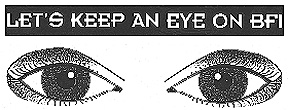Local Eye on BFI
A non-union newcomer to waste-handling in King County, BFI has become a target of an innovative organizing campaign. Nearly all waste-handlers in the area have historically been union "ever since they were pulled by horses," notes Teamster organizer Steve Williamson. Employees at BFI's Seattle site are mostly Iraqi refugees and Hispanics, 70% of whom have already signed cards of intent to form a union.

Area Teamsters have kicked off an innovative pressure campaign against non-union Browning-Ferris Industries.
But instead of taking the traditional next organizing step, a certification election, Teamsters are first mounting a public pressure campaign against BFI, distributing postcards asking Seattle and King County officials not to grant BFI any government contracts until it shapes up its labor and environmental record. Williamson explains that many large companies are too good at countering your average union election. "They'll fire the active workers, and be forced to hire them back a year later, but by then the campaign is lost."
Still No Electoral Focus
Labor is beginning to see that US workers are nearing a kindling temperature, and is positioning itself to be the banner-bearer for grass-roots discontent. Still, labor is suffering from a large gap in thinking between labor leaders and actual workers.
PAKISTAN- The Clinton administration in March imposed partial trade restrictions on Pakistan for it's failure to abolish bonded labor and child labor. The U.S. Dept. of Labor estimates that there are more than half a million children in servitude in carpet factories in Pakistan and India.
HAITI- The average worker at Quality Garments in Port-au-Prince earns about $1.67 a day (minimum wage is $2.40). After paying bus fare and lunch, the worker takes home less than a dollar a day in this piece-rate factory. Piece-rate work was banned by President Aristide a year ago, but the practice continues. Workers at Classic Apparel say they have been attaching "Made in USA" labels to League Leader brand clothes made in Haiti. The brand is sold in Wal-Mart stores. (Multinational Monitor)
UNITED STATES- Several large companies, including Boeing and AT&T, have hired PR heavyweight Hill and Knowlton to undertake a pro-China campaign. The firm has been lobbying Congress and paying scholars to write pro-China op-ed pieces for major newspapers. In 1994, soon after Clinton extended China's favorable trade status, the Chinese government began long-delayed trials of labor organizers and other dissidents. (Multinational Monitor)
DETROIT- Circulation at Detroit's Free Press and News have dropped 50 percent since the beginning of the 11-month strike, according to a union survey. The Newspapers claim they have not lost that much circulation, but have refused to release their circulation stats to the Audit Bureau of Circulation, a national company used by advertisers to confirm readership. AFL-CIO President John Sweeney has called for a "do not buy" campaign against USA Today, published by Gannett, which also publishes the News. (AFL-CIO News)
RUSSIA- Trade unions have attempted to pass a law defining the rights and guarantees for their activities. The law passed both chambers of the Federal Assembly, but was vetoed by President Yeltsin. In other news, government enterprises in the country have lapsed on paying employees, and owe some U.S. $2 billion in back pay. In 1995, there were about 6,000 strikes in the nation, many over the issue of nonpayment of wages. (587 News Review)
[Home]
[This Issue's Directory]
[WFP Index]
[WFP Back Issues]
[E-Mail WFP]





Contents on this page were published in the July/August, 1996 edition of the Washington Free
Press.
WFP, 1463 E. Republican #178, Seattle, WA -USA, 98112. -- WAfreepress@gmail.com
Copyright © 1996 WFP Collective, Inc.
